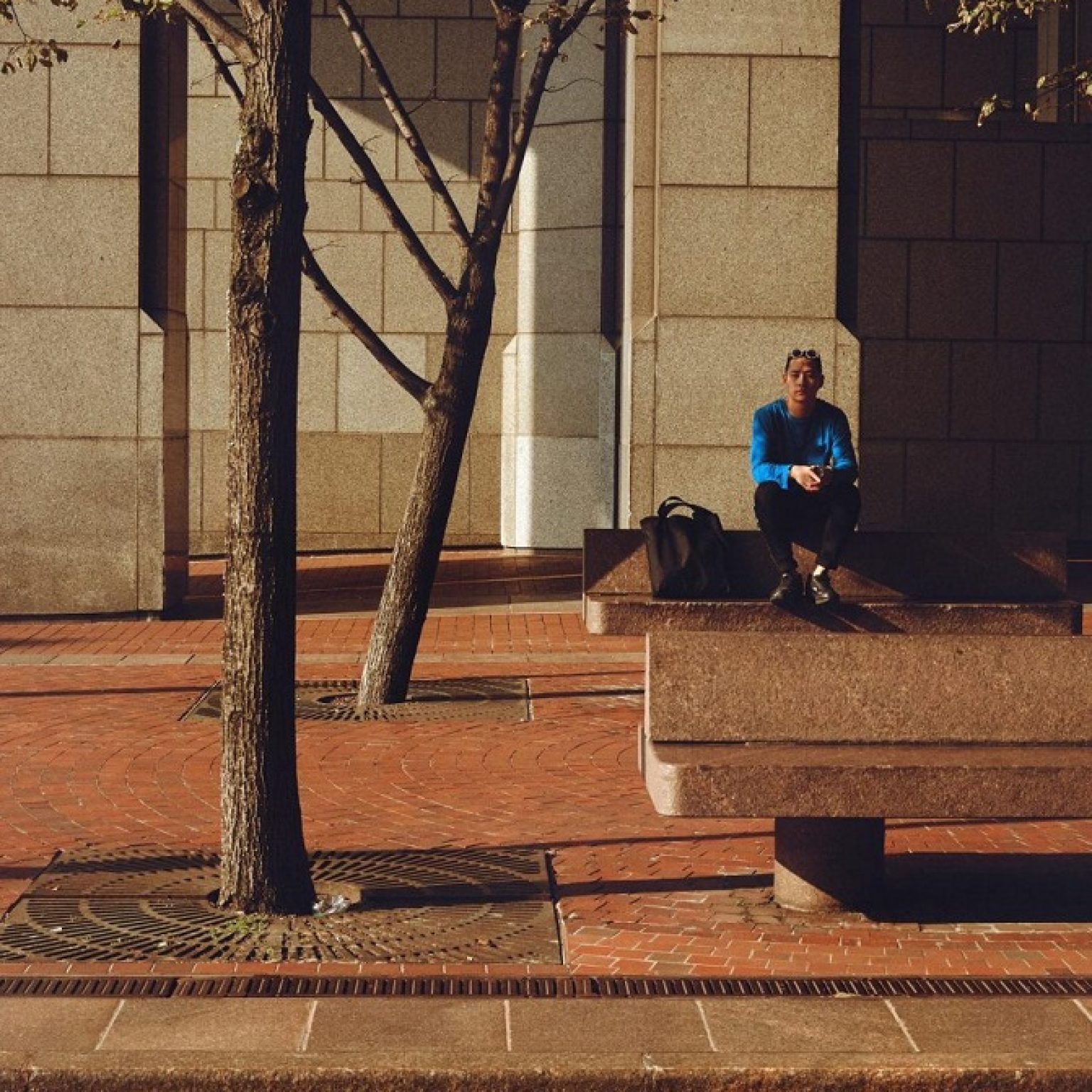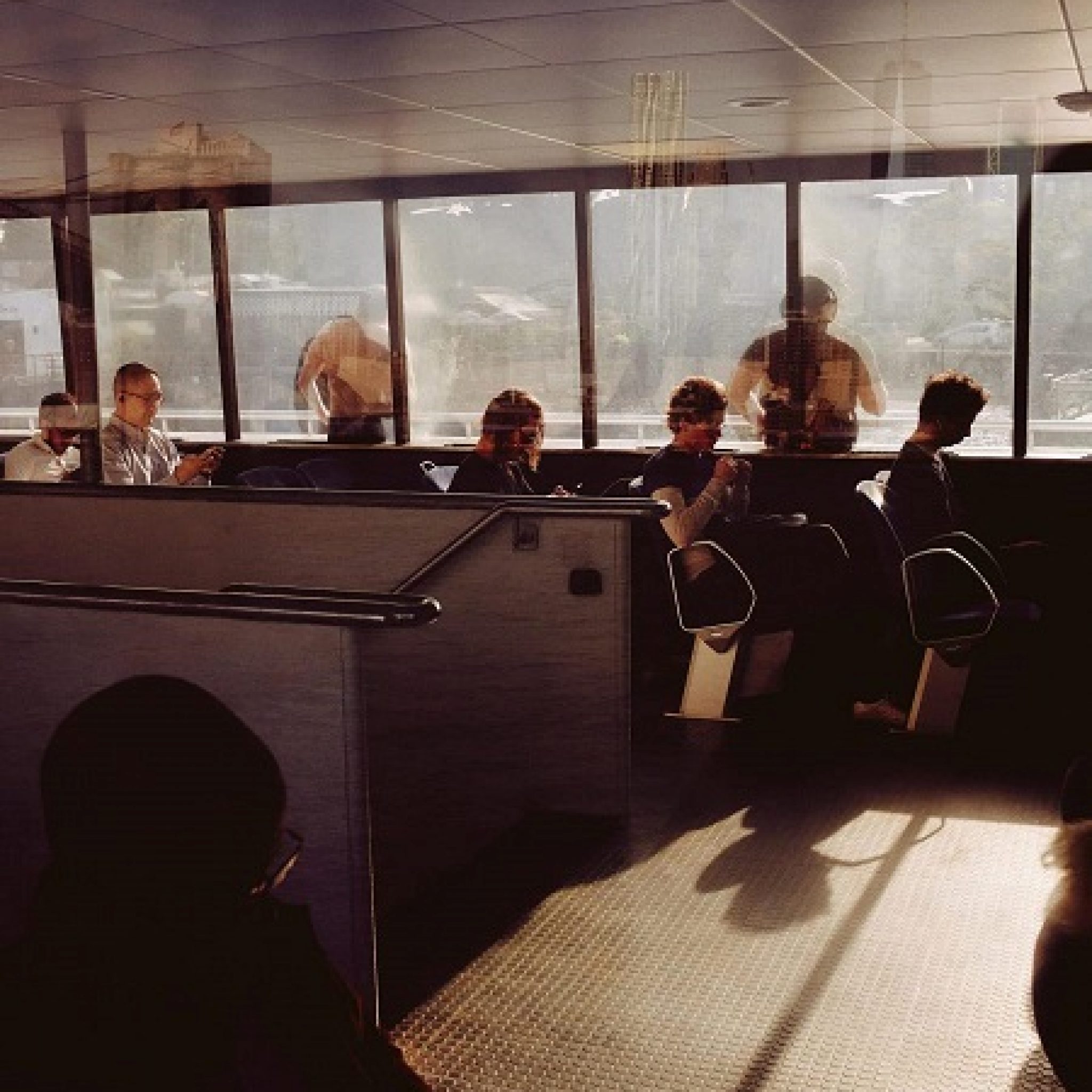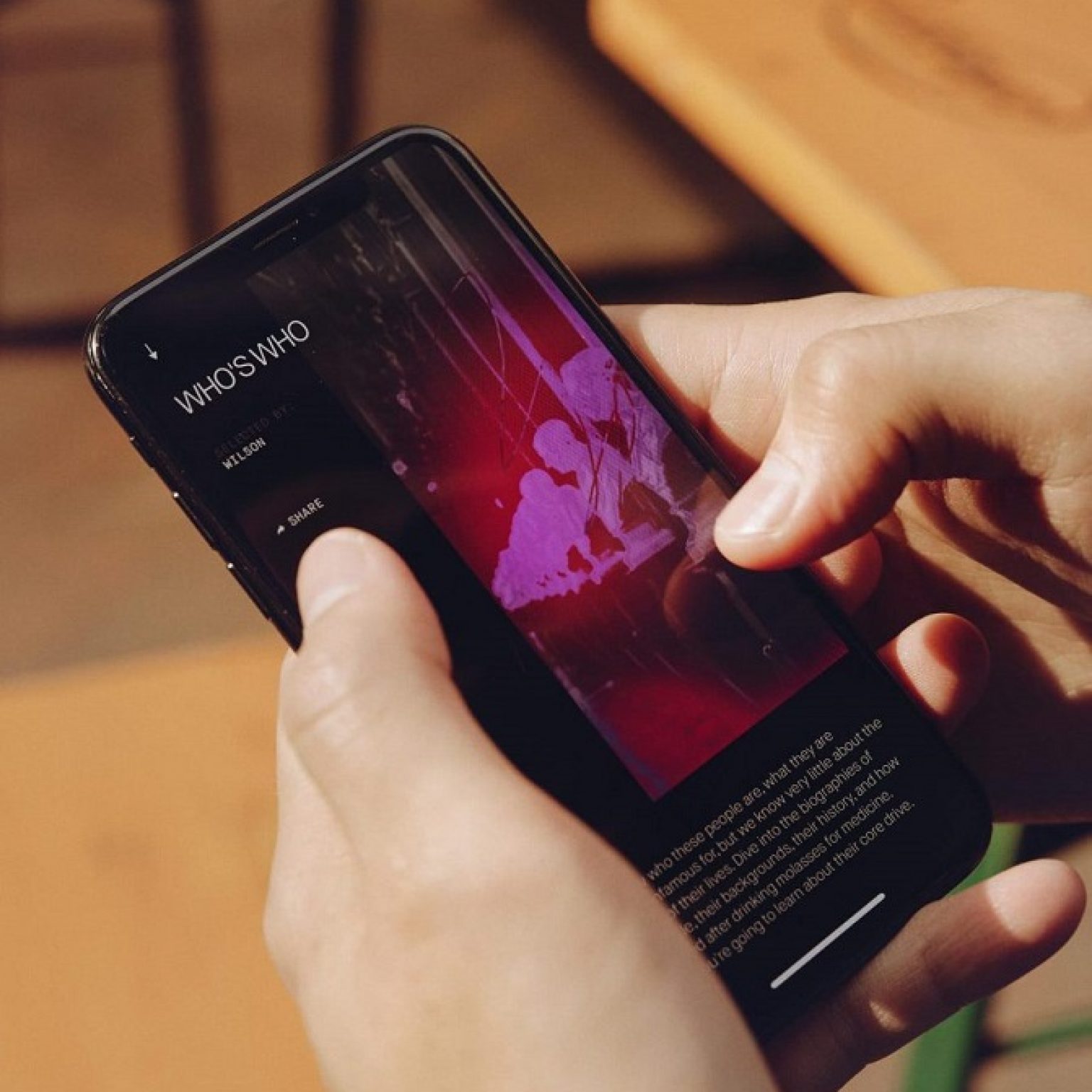Podcast app.
What images does that immediately conjure up? A bit of album art? Buttons for pausing, playing, skipping to the next track, going back 30 seconds? A cold sterile, “tech-y” experience?
Most if not all podcast apps in the current podcast 2.0 era fall within those parameters. Until Wilson entered the space. Wilson is conceptually unlike any of its predecessors. Yes, it plays podcasts, but its high-level of human touch and curation helps users find context and clarity on topics and narratives. At its simplest, it’s a curated series of podcasts built into weekly issues or lists.
But it’s arguably much more. Wilson provides clarity through cohesion. Topics are carefully chosen to have a perspective and the ensuing selections crystallize those ideas. This app pushes against what is often a frustrating podcast discovery experience where the search for new content usually happens everywhere but within your podcast app of choice. New podcasts are found through word-of-mouth or research done on the side rather than relevant suggestions within apps.
Five minutes into my call with Allan, who was gracious enough to speak to me late in the evening, the philosophy behind Wilson is apparent. Timing, though, is integral to Allan’s story. Wilson sat dormant as an idea for almost three years before a hiccup in Allan’s life at the start of 2018 forced his hand into taking one last shot at something before packing his bags and starting a new life in Berlin.
Over the course of our conversation, it seemed as though the initial success of Wilson validated all of the ideas Allan had brewing in his mind. It took one win (a big one at that) to make real the things he knew all along. That innate perspective is something he firmly believed in, but hadn’t previously shared with the rest of the world.
To learn more about Wilson, visit the website or download it now on the Apple App Store. Also, check out our curated playlist for Wilson, which includes some of our favorite podcast episodes from everywhere.
So, let’s start right at the beginning. How did Wilson start?
Before I started this project, I was really depressed at the beginning of the year and the entire engineering team where I was working got let go. I was going to move to Berlin. My now business partner and mentor Cameron was like, “What do you want to do?” I told I him, “I want to move to Berlin, blah blah blah.” As we were chatting, I said, “You know, actually I have this idea, and I’ve been wanting to do this podcast app for three years. I have mockups on my computer that I did three years ago.” I thought, if I fail, I can just go to Berlin, I have no more ideas left in my head, I’ve tried everything. I started Wilson because I was at a dead end in my life and I just had this idea, it became a podcast magazine, and then it became what you see today. It wasn’t this polished in the beginning, it was very vanilla and bad.
“I think a lot of tech shit just treats people as a group or cohort, and they all believe they can make a product for it. I’ve been on that end of it, and I know how to dissect the market… I think that’s so inauthentic. ”
To take it back even before that, you seem to have a slightly different entry point into this space. What was your background like growing up?
I’ve been in this creative industry for a long time. As a kid from Brooklyn, I used to buy and sell sneakers in New York. I’ve been in e-comm and design for ages and I’ve always had a hard-on for podcasts. I always wanted to make it better. The first version of this Wilson thing was just a better version of the Apple Podcasts app. It wasn’t that good. I went around to people and asked how they felt and while they liked it, it didn’t matter because what I showed them was only a better version of what everyone else was doing today, which is a podcast player. It’s all vanilla shit.


So what did you land on from there?
I needed to go to a different point of view, and the other point of view I had was: I can curate stuff, and I don’t have to make everything look the same. I don’t have to make episode covers the same. I can contextualize it the way I like it, and then I apply things I’m good at, such as design. Wilson is a very easy entry point to get people to start because nobody wants to use a new podcast app. That’s the default thing. How do you get people to start using it? You give them more value and you give them more content. And that’s where the idea came from.
And the initial reaction was…
And once we launched, people started to love it and I was really surprised because if you think about what we’re doing, it’s so stupid and simple. Here’s a podcast thing every week. But because of the way we’ve been branding it, talking about it, and our attitude towards the culture and towards what I love myself, we started to have a community. Other podcast players can’t have that, which is like an industry of creative people like a Yimmy Yayo.
“There’s always these people who are at the hub of a consensus of knowledge and podcasts have so much of it and there just hasn’t even been one podcast magazine equivalent. I just saw that little opening.”
Do you feel that Wilson’s strength lies in a voice and a perspective?
Yeah, and that voice happens in every culture or any medium. There’s movie criticism. Music has Pitchfork, and fashion has somebody like Anna Wintour. There’s always these people who are at the hub of a consensus of knowledge and podcasts have so much of it and there just hasn’t even been one podcast magazine equivalent. I just saw that little opening. It’s also, through Wilson, funny to talk shit and say funny shit online. This new culture of young creative people who are at the forefront of it all, and guess what, these motherfuckers listen to the podcast.
Do you see Wilson as a direct pushback against how apps are designed and how tech intersects with our lives?
All that fucking tech shit, it’s so inauthentic. I don’t know where I’m necessarily going with Wilson, I just know I want to make some cool-looking shit with people from the community who I share aesthetics and similar thoughts with. We’re here to be a platform to be used by you and the community. We’d be nowhere without people like us and you.
What else about the underpinnings of tech bother you?
The point I want to push away from is: I think a lot of tech shit just treats people as a group or cohort, and they all believe they can make a product for it. I’ve been on that end of it, and I know how to dissect the market. I hate that shit. I think that’s so inauthentic. It makes a product out of people, whereas the people make the product. I’m against that philosophy, and I hate this disrespect of individuals. The people who work in tech think they know everything and they think they know how to design things for you. They’ve studied all the copywriting, and everything is so meticulously designed. That’s not to take away from their skills, just what they do. And then in the end, there are no more ‘people.’ They’re data points. And I hate that.

When you have good content that’s not contextualized or when you have so much content that’s contextualized by one boring thing used over and over again—one, you’re not doing people any favors and two, you’re not tapping into the audio format and psyche of how people relate to content.
What about the positive side?
I want to leverage scalability and money and how fast money can take you to a destination for your product. Money is fuel for me and the most amount of fuel you can get right now is in the tech industry. So, when you have a good idea and you’re earnest with it, you can take that fuel and go really fast. The sensibility and scalability of tech is amazing. You can’t say that for any industry. But the culture, the people there, and the design—assumptions that people have that it’s boring, gross, and overdone.
What’s your perspective on the current crop of podcast apps?
They’re all mad corny and all of them sucked. There’s nothing that’s good. Everyone is trying to be a better player. But that doesn’t work out because Apple still wins the game. And there’s no point of view and no experience that’s 10x or 100x better than what I’ve seen. So everything fell short. A lot of them are focused on power users. Overcast is a very power user-focused thing. They’re not discover-friendly. You have to know what you’re looking for and their search experience is almost impossible. But then the people who try to do a better search experience, they become either inauthentic because it’s people trying to promote their own weird shitty content as premium, or they’re using that top 10 shit. I know the top 10 everywhere is a top 10 everywhere period. You know, Fresh Air, This American Life, Joe Rogan—I’m not getting new content.
You see a fundamental need to shift how we look at podcasts. You’re right in that when you look at media in general, you might recommend a title but then focus in on an interesting article you just saw.
In terms of podcasts, the word itself means four different things in all tiers of its abstraction. You don’t know what to look for whereas what we really want is episodic shit. I want something at an episodic level and just tell me whether it’s good or not. Because Reply All has so many episodes you can either say it’s investigative journalism or Internet-related content. You have to contextualize an episode based on an idea and then it gives the episode a lot more weight, which then in return gives the podcast more value and also trust.
“Nobody has done a really good job of bringing together graphic people and the tech world and made an app that does both.”
So, the name, where did it come from? I often find the attribution of human names to tech interesting, especially in an app setting haha.
Ah shit, this is not a good answer, brah, it’s a bad joke. I made a joke about “pod cast away,” based on the Tom Hanks movie, Cast Away. Then I landed on Wilson (the inanimate volleyball that served as Hank’s friend in the movie). It was an abstraction away from being in the same naming convention as casting. Every podcast company today has a ‘pod’ or ‘cast’ and it’s disgusting. Have some level of creativity, you know? I don’t think mine is the best one, but I took it away from that and when it came to curation, Wilson just sounded like a really smart person who you can trust with telling you what to do.
One of the things that strikes me the most is the different visual approach of Wilson. Where does this stem from?
I come from a product design background, so everything you do has to be usable. But I’m also very “fuck tech, and fuck everything”. I try to make some things a little bit more difficult to use or I try to make the type a bit smaller. A lot of the cover stuff is my interest in graphic design. Eric Hu is one of my really good friends and I know all the Yale fucking grads in New York City. But I’m a really big fan of graphic design and in tech, you don’t really get to touch a lot of that, even though those are the places where there’s a lot of branding, personality, and voice. Nobody has done a really good job of bringing together graphic people and the tech world and made an app that does both. I’m in both social circles, I respect both crafts differently, and I just felt I was a person who was able to bring it together. That’s how the aesthetics developed. It’s completely usable and everything you expect on how an app should work. Yet it’s completely opposite of that in terms of its visual aspects.


Yeah, you mentioned you have a great interest in the album cover. That visual piece has sort of gone the wayside in the digital era. It no longer has the same pull as it once did, sitting on a shelf at a record store, or even as a book cover you examine while commuting on the train or bus.
I think visuals play the same role as an album cover. Album covers are iconic. When I mention Biggie’s album, you know exactly who I’m talking about. An album cover, it contextualizes content. And when you have good content that’s not contextualized or when you have so much content that’s contextualized by one boring thing used over and over again—one, you’re not doing people any favors and two, you’re not tapping into the audio format and psyche of how people relate to content. You can contextualize songs by an album cover, but when I ask you to contextualize a podcast, you’re doing the whole network of things under one roof and that might work for one podcast like Serial or S-Town. But it doesn’t work when it’s like two seasons in. Any show should have a different sort of aesthetic to help people contextualize information and no one’s done that. It’s a disservice.
This is your first endeavor being your own boss. What do you think of it all? It seems you have a pretty clear point-of-view.
Incredible. It’s the most exhilarating things I’ve ever done. Right now, I’m trying to continue to fight for that power. The more public you go with your work, obviously it’s a double-edged sword, you love that people enjoy it, and you also want to cater it towards what people’s use cases are and their desires. Your community is shaping you as much as you’re shaping it. But the hardest part right now is to figure out how I can maintain that control and be respectful of other people at the same time. Sometimes I’ll go one way and think of an idea that satisfies everyone and then another day, I’ll do none of that—to be level headed at that, it’s really hard.
Where do you see Wilson heading?
The next step is making a platform for creators. It’s not only a place for you to find episodes, but you can also have it as a platform for you to conceptualize content, write about it, and put your pictures on there however you want to release and with whoever you want to communicate with. We’re going to do a bigger broader partnership with everyone so that everyone has a clear channel, and that will open it up to a bigger audience so that everyone can be in touch with you and have all capabilities.
Since launching Wilson, what did you expect it to be, and what has been the reality?
The reality after I launched was maybe a three-person team. From the day we launched, within two weeks, we got featured in all kinds of ways including by Apple in the App Store. I have to sit back and say, “Shit, companies try to get on the list and they have a whole team with money, and they still don’t get featured.” We did it in two weeks. It personally gave me a lot of confidence, because I thought Wilson was a dumb idea because it was so simple. I set a playlist every week and that’s it. That’s the thesis. It’s just like Twitter’s thesis where you broadcast 280 characters. But once we got traction and people started liking Wilson and it got featured, I was blown back and very humbled by that. And yet I was really scared when it first happened. Now I’m thinking a little more seriously because I realized, “is there another company I want to go to? Probably not.” I built this little vehicle for myself and for my friends and for whoever can help. I can say I’m really doing what I love, and that’s my own. It’s built from the heart and not from the money-making perspective. Most people found startups because they found a market that needs a thing. I found a thing that I loved and then I found a market within it.

If you want to learn more about Wilson, visit the website or download it now on the Apple App Store. Also, check out our curated playlist for Wilson, which includes some of our favorite podcast episodes from everywhere.

































